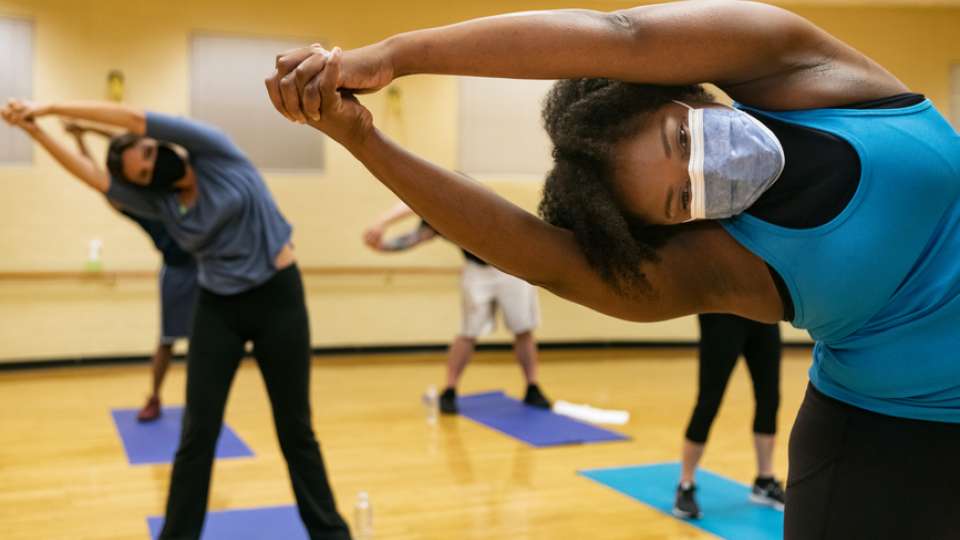
If you’re wanting to become a healthier version of yourself, a quick Google search could send you down a rabbit hole of the latest exercise trends, fad diets and every quick weight loss scheme you could possibly find. The “thin=healthy” narrative is still very prevalent, despite the progress we’ve made in recent years to change the perception of what makes someone healthy.
Ultimately, experts agree that if accessible, an exercise routine is important to maintain your best health. However, weight loss shouldn’t be the end goal. Often, getting your body moving a few times a week is plenty to help you feel like your best and healthiest self.
Should weight loss be a goal when exercising?
When you begin a new exercise routine with the goal of improving your health, it’s possible you will see your weight fluctuate as you get into the habit. It’s completely OK if you don’t lose weight during that process.
Losing weight with exercise is not inherently bad. In fact, it may be a personal goal you are working toward, or a recommendation by your doctor. However, to understand the answer to this question, it’s important to slowly untwine our associations with weight loss and exercise.
“Oftentimes people frame weight loss and exercise as two things that go together,” says Dr. Mansi Shah, a primary care provider at UW Medicine. “It’s really important to get exercise for mental health, overall health, and sleep, but whether your weight changes in response to your exercise routine is something that is not really under your control, despite the pervasive cultural messages we receive that suggest the opposite.”
So, no, losing weight with exercise is not bad, but it shouldn’t always be the focus. What’s most important is finding a routine that makes you feel better physically and emotionally.
“We should disconnect the idea of being healthy from the idea or goal of losing weight,” Shah says. “We make a lot of assumptions about our health and the health of others based on weight, and we should unpack these assumptions. A higher number on the scale is not an automatic indicator of poor health.”
How to exercise for health, not weight loss
Ultimately, the health benefits of exercising far exceed the potential for weight loss. Regular exercise can pave the way for a healthy heart, as physical inactivity can increase the risk for heart disease. Exercise can lower the risk of heart disease and even prevent it from getting worse if it’s already present.
“It’s important for everyone to exercise because it’s great for your body for many reasons,” Shah says. “But that doesn’t mean the exercise itself needs to be intense.”
Exercise tips
-
Start slow. Your body will need some time to adjust to a new routine.
-
Walking 30 minutes a day or an hour a few times a week could give you enough movement to add some benefit to your health. In fact, the Centers for Disease Control and Prevention recommends that adults get at least 150 minutes of moderate aerobic activity, or 75 minutes of vigorous exercise (or some type of combination) every week.
-
If there are certain types of exercises you don’t like doing, you don’t have to do them. Not a runner? That’s OK! Prefer squats over lunges? That’s just fine too.
-
Keep a training log. This will keep you organized and track important milestones and information that help you in your new routine.
-
Fad diets are often more harmful than they are helpful.
Above all else, treat yourself well. We should continue to shift our perspectives to change the narrative around weight loss as an indicator of health or successful exercise.
If it’s not something you want or need, pushing yourself to your limits or tracking the numbers on the scale is not an act of true health or self-love. Exercising to get movement and feel better overall, is.

 Healthy ideas for your inbox
Healthy ideas for your inbox





